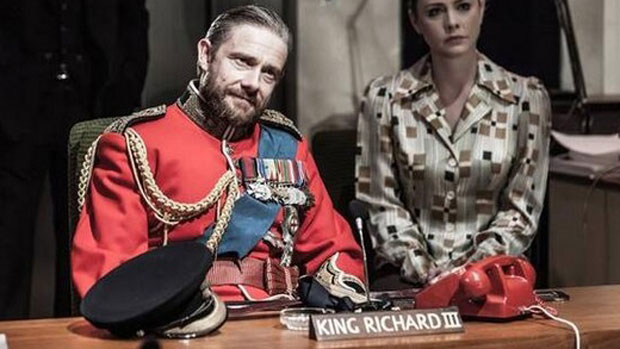Much ado about clapping: when is it wrong to applaud?
To clap or not to clap, that is the question facing audiences accused of applauding at the 'wrong' moments

A free daily email with the biggest news stories of the day – and the best features from TheWeek.com
You are now subscribed
Your newsletter sign-up was successful
Is there a right and wrong time to clap at the theatre? "Seasoned theatregoers" have reportedly had their noses put out of joint at early showings of Shakespeare's Richard III in the West End, where young fans of Hobbit star Martin Freeman have been applauding and cheering at the "wrong" moments.
Reports in the Evening Standard, The Daily Mail, and The Times highlight the mounting tension between traditionalists who believe that applause should be reserved for intervals and the final curtain and younger audience members who have been applauding Freeman's first appearance and first soliloquy.
So when is the right moment to express our approbation?
The Week
Escape your echo chamber. Get the facts behind the news, plus analysis from multiple perspectives.

Sign up for The Week's Free Newsletters
From our morning news briefing to a weekly Good News Newsletter, get the best of The Week delivered directly to your inbox.
From our morning news briefing to a weekly Good News Newsletter, get the best of The Week delivered directly to your inbox.
How to clap
This handy WikiHow page gives comprehensive advice on how to execute a clap. The guide offers tips on clapping at social engagements (demurely, with just the first two fingers), at rock concerts (hands in the air) and when meeting up with an old friend (a one-handed slap). But the guide does not cover the thornier question of when clapping is appropriate.
Debrett's rules on applause
For those of us too uncouth to know how to handle ourselves in public, there is always Debrett's New Guide to Etiquette and Modern Manners to fall back on. In a post on proper conduct at the theatre, Debrett's notes that "Cheering and whooping should be kept to a minimum and whistling avoided. Boo-ing a performer is never acceptable (unless at a pantomime)".
A free daily email with the biggest news stories of the day – and the best features from TheWeek.com
Also, according to the guide you should aim to "join in and finish when the clapping starts and subsides – you should never have your own solo performance before or after the main body of applause".
Finally, there should be no talking, canoodling, fidgeting, leaning forward, putting feet on seats or snoring. And always turn off your mobile phone.
Historical clapping
The New Statesman's Caroline Crampton says that theatre etiquette has never been more stuffy than it is now.
"Back when Richard III was first performed, Shakespeare’s audiences heckled the actors and one another, had fights, consumed food and drink, and generally had a rowdy good time," Crampton says.
Even as recently as the nineteenth century, when Oscar Wilde's plays were being premiered, "society luminaries came to exchange gossip and elicit scandal, and where the hoi polloi came to laugh uproariously in the pit".
"Clap-shaming", Crampton says is "snobbery, pure and simple".
Direction from the director
Amid the furore, a voice of reason shone through on Twitter on the weekend, when the play's director, Jamie Lloyd, defended the behaviour of audiences at London’s Trafalgar Studios.
"I think that we are seeing an authentic, enthusiastic reaction from a generational muddle in the audience," Lloyd said. "The standing ovations have been instant and from young and old alike".
-
 Political cartoons for February 12
Political cartoons for February 12Cartoons Thursday's political cartoons include a Pam Bondi performance, Ghislaine Maxwell on tour, and ICE detention facilities
-
 Arcadia: Tom Stoppard’s ‘masterpiece’ makes a ‘triumphant’ return
Arcadia: Tom Stoppard’s ‘masterpiece’ makes a ‘triumphant’ returnThe Week Recommends Carrie Cracknell’s revival at the Old Vic ‘grips like a thriller’
-
 My Father’s Shadow: a ‘magically nimble’ film
My Father’s Shadow: a ‘magically nimble’ filmThe Week Recommends Akinola Davies Jr’s touching and ‘tender’ tale of two brothers in 1990s Nigeria